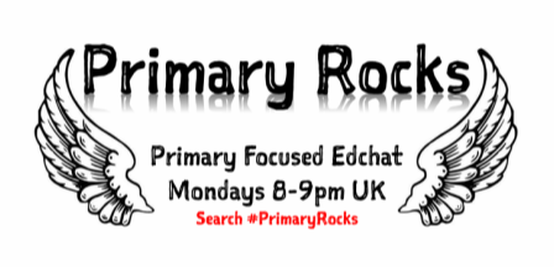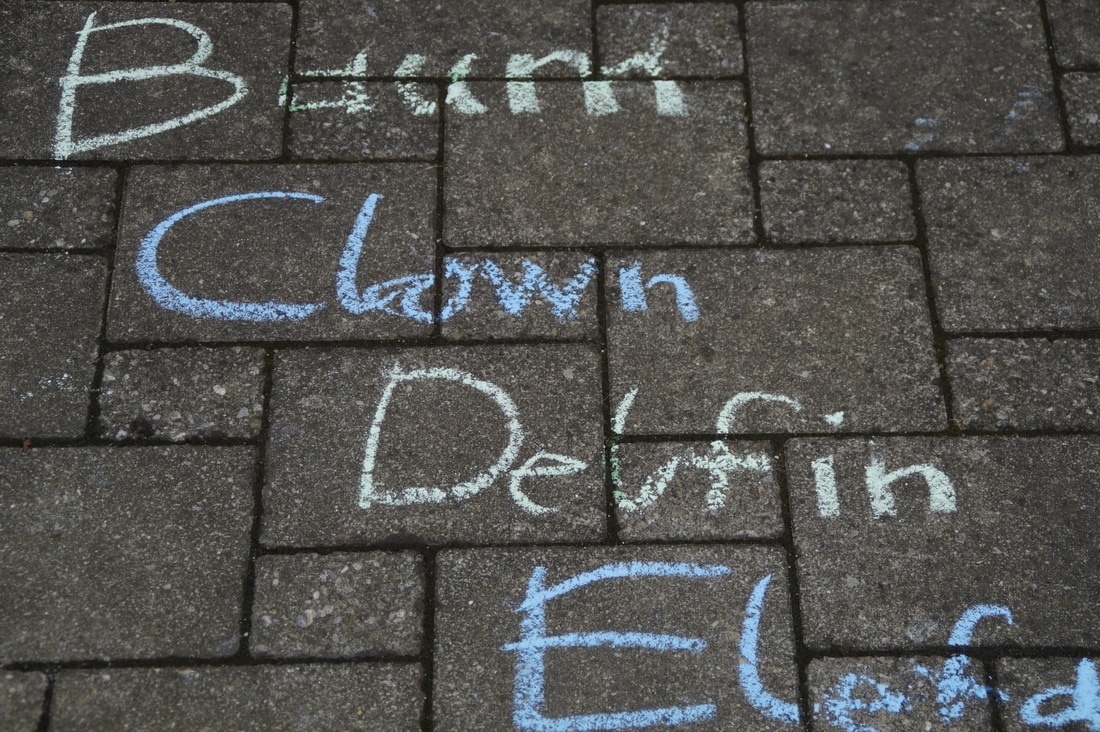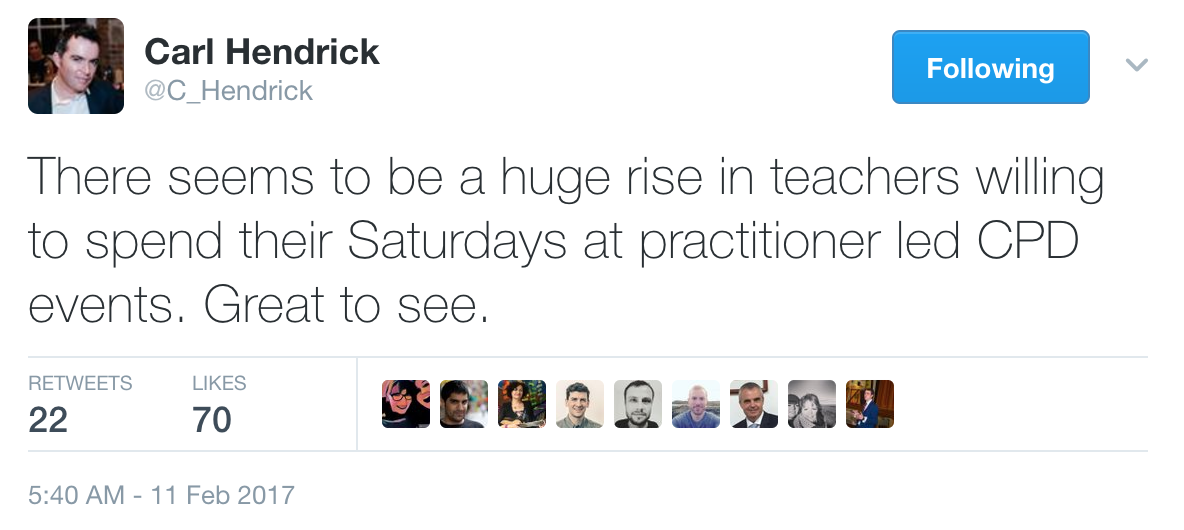|
All children should be given equal chances to do the best that they can in our classes - agreed. This is why teachers are often asked to focus on key groups (depending on schools, their cohorts and their latest Ofsted reports).
Indeed, eliminating the well documented learning gap goes to the heart of why some of us decide to work in the school in which we do. There can be little argument that there is a moral purpose behind helping those classified as Pupil Premium. This group is one that my school are currently focussed upon as it is clear that their progress in writing is less than that of non-PP and they are a group who generally might not have the same exposure to experiences outside of school. This group have a complex range of needs and are a mixed ability group of learners but, with a few simple adaptations and some not-so-simple-but-worth-it ideas, children who are at a disadvantage in life will be catered for as equally as others. I'd like to add, that I'm not a big fan of grouping children, but actually when it comes to analysing data and providing the best learning we can for all children, I believe it is vital to be aware of these categories and the patterns that may exist. Equally, I have children who are not technically 'pupil premium' and won't be because of a matter of pennies earned by their working-four-jobs parents. These children fall into the same learning gap as our PP children in many areas, some in fact more so. Due to this issue with the grouping system, I have a slightly larger unofficial 'PP group' as I include these peripheral pupils in each of the following: Feedback first I stole this from a secondary colleague as it just makes sense: Top of the pile/first in your queue (however you give feedback is fine by me), you're fresh as a daisy, feedback will be clear and these books will be first to be handed out so they have most time to edit and improve their writing. Peer pair They have a buddy who is not necessarily the person they sit next to, with whom they can go to for help with ideas at the beginning and when editing throughout. Lack of ideas can be a real mental block for anyone. When writing a narrative for example, lack of exposure to different plot lines from which to inspire their own story is a hindrance. Thus they go to their buddy with their story mountain to discuss what could happen and if their idea makes sense. Parent partnership There are easy ways to ensure parents are involved with school. For some, this isn't a problem PP or no PP. There are things we do as a school: newsletters, assemblies and parents evenings. When these aren't being used by PP parents they need tweaked. How does parental engagement help children's writing you ask? Well, their parents become more interested generally. Why would the children want their writing photographed for the blog if no-one was looking at it? Why would the children enter the competition to design the disco poster if they knew they wouldn't be going? Why would the children want to write something for the class assembly if their parents can never go? Why would they work their hardest if their parents have no contact with us to find this out? Here are a couple of simple fixes: 1. Parents have reminders about parents evenings: blog, messages, at the door, in the school bag. 2. Parents evening slots are created/juggled/extended - often we aren't in their working hours. Meeting over the phone is not unusual and I’ve recently done this during the mum's break at the hospital. 3. Videos and pictures of children during class assemblies 4. Pictures of newsletters and letters so they actually get home (4.5. Getting parents in to help set up email while colleague plays with 4 kids, so all letters are emailed so can't get lost and why not Class Dojo while you’re at it?!) 5. Free non-uniform day ideas sent to all parents via Class Dojo (notifications on phone) 6. Simple messages home about getting eyes tested, changing their lunches or even reminders about discos. Teacher time There are little slots in the day when I make sure I see all PP children: // At the door in the morning, after break and after lunch: this is for all children, but essential to welcome them back into our space leaving everything else at the door ready to learn. // Preliminary mini plenaries: During any writing, I'll gather these children and we'll then have a look at a couple under the visualiser to assess together. This small group has had expectations modelled again and can go and edit and continue writing knowing they're on track. // After lunch, during handwriting, I will ensure I go and look at each of theirs and have a little tête-à-tête about what and how they're writing. Experiences I have just finished the co-planning of a 6 week writing project for the PP pupils (including our peripheral PP) across the year group. It's a lesson a week, but requires daily writing in their very own special book. It involves collaboration with a high school in Brighton and their Y8/11 pupils using us as a revision and pupil-leadership programme. Each week there will be communication between the two sets of pupils, including a field trip one week. This communication and the learning that comes from it will be the inspiration and encouragement for writing for a variety of purposes. Not only that, but their audience will widen to older children and their teachers as well as the unknown audience of a geocache. If there were a learning goal, it would be 'to develop an enthusiasm for writing through a series of collaborative geography focussed lessons'. Updates will be available just before Easter hols! Keeping these PP children at the back of our minds ensures they don't get lost in the day to day hubbub and get opportunities similar to their peers. Indeed, if we don’t accelerate the learning of these pupils; give them the cultural capital that they will need in order to negotiate secondary school and address their deficiencies in writing, reading and maths, who will? We could leave it for the next year group/key stage/ school to worry about, or we could nip it in the bud now. By Leah Sharp @Leah_Moo
3 Comments
The need for children to develop an advanced vocabulary was brought into stark focus in May last year, when the new KS2 assessment for reading was unleashed on the nation's children. In it, the children were required to read a text suggested to be aimed at 14/15 year olds as well as answering questions on it. Children were reduced to tears and the national pass rate plummeted. Reading was no longer a 'soft' subject where you chatted with a group for a week about a book, it was a serious academic discipline once again. To pass, children would have to read quickly and accurately as well as be able to comprehend complex vocabulary on a level not required before. The question is: we know how to teach decoding, but how can we help children develop a greater vocabulary?
I've a few ideas, (this is by no means a comprehensive list): 1. Promote a love of decent books Put simply, if your child doesn't read outside of school, this standard is likely to be well out of their reach. Not only that, but unless the stuff they read is of a sufficient quality, they still won't pass. You need to place value on reading. You need to promote books that are at age related standards. No more Jacqueline Wilson in year 5, no more Diary of a Wimpy Kid, but Narnia, Hunger Games, Alex Ryder and Harry Potter. Its not good enough anymore to simply check reading diaries to see who is reading, what they are reading is important. Don't allow comics in class, don't allow e-books or soft touches, set the standard high and keep it there. If you don't do it, no one else will. Take the kids to the library, give them recommendations on what to read next, read complex texts to them out loud. There are millions of amazing books out there, kids just need to be exposed to them. In my experience, children want to do well, so will try these books, pick the right one and they are away. If your kids don't love reading because they cant find what to read, you need to do something about it. 2. Normalise complex vocabulary I'll always remember when I was an NQT I was given feedback that said (paraphrased) "the words you use are too long, the children don't understand what you are saying." Talk about low expectations. They did, because I deliberately use different vocabulary to what they children hear at home and when I do it I explain what I am saying. It's like using the word 'upset'. When I first said to my class that they had been upset by the fact it was raining at breaktime, they replied 'no we weren't'. This is because they understood the word upset as meaning sad. When I explained that it also meant to knock someone out of their normal way of doing things, they got it. Now I can use it all the time and they get what I mean. Same with the word 'plausible' - "does anyone have a plausible explanation as to why I have highlighted the words in this paragraph?" Its about presenting new vocabulary in a careful way, clarifying meaning as you go along. 3. Model decoding unknown words for meaning Have you ever learned a new word and then suddenly it appears everywhere? This happens to me all the time and I'm assuming its because before I understood the meaning properly I was simply skipping over words I didn't know. This is a bad habit for children to get into, especially with the specific vocabulary questions that appear on the KS2 tests. If you read out loud to your class (which you should), you've got a great opportunity to model how to decode and understand complex vocabulary. Children should have been explicitly taught the strategies of reading around a word, substituting another of it to see if the sentence works, stripping a word to its root and working out the meaning from there and so on. If you do this every day, you will find these strategies are embedded and children know what to do when meet a word they cannot understand. 4. Use kids as an agent to improve reading In my class we do 'real reading and fake reading'. The kids read for 10-15 minutes in silence and then I randomly pick 10-15 kids and get them to tell everyone about what they have read. This enables them to hook others into the story they are reading and recommend books to their peers. It also enables me to ask them what other books are like the story they are reading. This helps children to move between authors and books they like. I've lost count of the number of times when a child had given a glowing summary of a book they had read and people asked them "Can I have that after you?". That's what you want. 5. Know your authors and don't neglect the classics I have this recurring nightmare that this year's KS2 SATS paper will have an extract from Wuthering Heights in it.In it, all the children cry at the archaic language and get zero. To assuage this worry and to help my kids graduate to the great texts of English (language) literature, I often read old texts out load to my class. For me, Enid Blyton is your best friend as a primary teacher, because she does two things: 1. uses loads of words the kids wont understand but more importantly, 2. her stories are absolutely amazing and hook all ages of children. The added bonus is that you can go into any charity shop and buy an Enid Blyton book for less than a quid. In 'Reading Reconsidered' Doug Lemov (to me) suggests that unless you've read archaic literature to your kids from the start of school, they have no hope to start reading things like Thomas Hardy or whatever when they are teenagers. There is a clear continuum from Peter Rabbit, to the Faraway Tree, to Narnia, to whatever. Whether people like to admit it or not, there has been a definite dumbing down of language in modern books for children under 6. How many children's books these days use the word soporific? It's in Peter Rabbit. If books stopped being published tomorrow, no child alive would be bereft of brilliant books to read, remember this while you look for the next great children's author or a snazzy interesting cover. Sell the content, not the design. I hope some of these ideas help - get in touch with me on @farrowmr or ask a question for discussion on #primaryrocks chat - Mondays from 8-9. A few days ago I saw this tweet by @C_Hendrick and nodded in agreement. I have seen many more of these events occurring recently, I get asked to speak at them and I am a small cog in the fantastic team of primary practitioners who organise Primary Rocks Live. I am the only one who is not full time school based. Why so many negatives floating on the sea of positivity? What has prompted me to write this blog is the negative thoughts many tweeters expressed around the concept of Saturday CPD. I won’t lift tweets and place them here but there were a number of issues raised amongst the raft of positivity:
I do not think there is an expectation for any staff to attend Saturday CPD sessions, it would be a different matter if SLT were placing this expectation on teachers. Some schools pay for Saturday CPD tickets and days in lieu if a teacher requests to attend and it is beneficial to the school or teacher. Why is there a need at all for Saturday CPD? Most schools have five INSeT days per year in addition to staff meetings and attendance at external CPD events so why is there a need for Saturday CPD events such as #ResearchED, Pedagoo and #PrimaryRocks Live? I think the answer is pretty simple – they offer something different. Most school CPD is booked by SLT who have an overview of the whole school, they assess any weaknesses and needs of the school staff. (accuracy of this assessment could be argued here). They then source CPD based upon these needs. One teacher recently told me on Facebook that they have asked to come on a Literacy Shed CPD course but have been told that the only CPD being sanctioned this year is maths CPD because this is high on the list of priorities for the school. You can see why this occurs if budgets are tight. If Maths and English are taking priority in a budget that is already being squeezed where will PE, Art and RE training it in terms of priority. This is the big difference between CPD that is chargeable and takes place during the week and Saturday CPD. Saturday CPD often deals with the wants of the teacher rather than the needs of the school. Personally my interests lie in English and PE, I lap up all modern developments and theories out there on these subjects. Truthfully, maths CPD, science CPD and behaviour training do not appeal to me, if I was in school where this was seen as a weakness then I would attend and take notice but I would be unlikely to seek it out otherwise. However, I want to find out more about the teaching of English, I want to see how it is done in other schools and how teachers are delivering it and I want to hear from academics in the field. This is where Saturday events come into their own, I can pick and choose which I would like to attend and who I would like to listen to whilst I am there – I can spend a whole day of CPD without anyone mentioning the ‘bar method’. The only bar method I’ll see on Saturday CPD days is the pulling of pints at the end of the afternoon. This is not the only difference between ‘traditional’ in school CPD and Saturday CPD. I have seen a number of fantastic speakers at these events, Hywel Roberts, David Didau and Jon Brunskill to name a few, speakers that schools could simply not afford to pay all staff to see in the same amount of time (especially when school CPD budgets are around 0.5% of their total budget.) I have seen these speakers talk for around 30 – 60 mins each time, Saturday events are like the tasting menu at a Michelin Star restaurant, you get little samples of wonderful tasty morsels which leave you wanting more. It is because of this that Saturday CPD is relatively cheaper than the traditional school CPD ‘Saturday speakers’ tend to speak for free or a reduced price. I deliver CPD in schools weekly but I speak at Saturday events and teachmeets for free when they are non-profit making events because I want to be able to share with those teachers who do not get the opportunity through school. Often speakers at these events, such as #PrimaryRocks Live, are full time classroom teachers who are not able to take time out of class to offer their experiences to others. It doesn't happen in other professions though so teachers shouldn't have to! One argument I saw repeated on twitter this week. Try this – type ‘Saturday CPD’ into google. A whole myriad of results appears. If you are an accountant it seems you can attend an ACCA course on pretty much any Saturday in the year, Dental nurses in Reading can top up their knowledge this Saturday. In Liverpool on the 6th of May you can attend the ‘Exotic Pets in General Practice’ CPD course (if you are a vet.) You could brush up on your counselling in Brighton this Saturday or choose from a range of massage courses to do in Kent. And it is not just in the UK, if you are a barrister in New South Wales their Bar association offers official accreditation for barristers attending two or more Saturday courses in 2016/17 As for burning out, please take my advice, if everything is getting too much for you then take Saturdays to relax and spend time with your family and friends. Or come along to a Saturday CPD event and make new friends. Saturday events are designed so you can take in as much or as little as you like. I have missed whole workshops because I have been sitting and chatting with like minded people in the refreshment area. I count some of the Primary Rocks team amongst my best friends now and Primary Rocks is a chance for us to meet up and enjoy each others company. (Especially at the end of the day when we all go for PrimaryRocksBeers) Blog by Rob Smith @redgierob |
Primary RocksThe primary focused edchat - Mondays 8-9pm UK time Archives
April 2017
Categories
All
|





 RSS Feed
RSS Feed